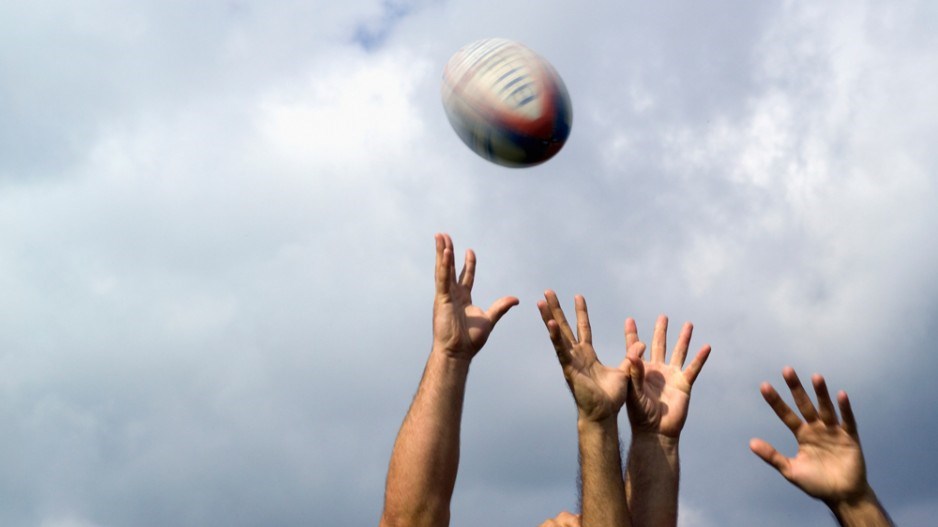Trying times for Rugby Canada continued last weekend with HSBC Canada Sevens attendance less than half of pre-pandemic levels and a 10th-place finish for the men’s team at BC Place Stadium.
Almost a month ago, a scathing report pointed to the organization’s leadership for the men’s team missing the 15-a-side World Cup for the first time next year in France and the women’s sevens squad’s failure to defend its bronze medal at last summer’s Tokyo Olympics.
The board-ordered report, by Calgary-based STRAAD Consulting, said current and former players confessed they were not proud to wear the Rugby Canada jersey.
“Either through acts of ‘omission or commission’ the leadership of the organization – board, executive, operations, and coaches – have not effectively managed the short-term and long-term needs of the high-performance program,” said the STRAAD review.
Allen Vansenm, who had been CEO since 2016, announced his departure last November, the month the review began. Earlier in 2021, Rugby Canada lost women’s sevens coach John Tait, who quit after an investigation into player complaints under its bullying and harassment policy (though “the investigator determined that the conduct referenced was not behaviour which fell within the policy’s definition of harassment or bullying,” the organization said) and national development coach Jamie Cudmore, who was fired over social media posts.
Rugby Canada said neither interim CEO Jamie Levchuk nor chair Sally Dennis were available for an interview. But the organization said it is taking steps to improve governance, finance management and athlete relations, and striking a working group to deal with the high-performance program.
Its next event is April 30-May 1 in Langford’s Starlight Stadium, beside the Al Charron Rugby Canada National Training Centre that was singled out by STRAAD. Headquarters in the Victoria suburb were deemed both expensive and isolated, “an undeniable challenge.”
“We have a great relationship with the City of Langford,” said a statement from Rugby Canada attributed to Levchuk and Dennis. “The review was authored by independent consultants, and while the report identified some challenges with the location of Langford, we view those challenges as strengths and opportunities. Langford is the home of Rugby Canada.”
The $7.9 million private-public partnership with City of Langford opened in 2018, with $2.9 million in federal grants and $2.6 million in fundraising. Rugby Canada began paying the city almost $100,000-a-year for a 15-year lease in 2018. At the end, Rugby Canada can own the facility and land for $1 million.
Before then, Rugby Canada faces the challenge of fixing athlete relations for the long term. In 2019, the B.C. Labour Relations Board certified the United Steelworkers Local 1-1937 as the bargaining agent for the men’s sevens team. The players’ vote to unionize was a first for a Canadian national team. Scott Lunny, the USW’s district 3 director for Western Canada, said players across the entire national program are now working towards a single players’ association.
“We will continue to back sevens because we have those legal representation rights and will back the players’ association to whatever extent they want to have a relationship with the Steelworkers, or any other union, if they felt that was the right,” Lunny said.
Said Rugby Canada: “USW currently holds the certification pending court appeal. Discussions continue, and all parties support the ongoing development of the Canadian Rugby Player's Association to serve as a representative body for all four national teams.”
The 2022 edition of the 16-nation Canada Sevens reported less than 34,000 fans, compared to almost 75,000 in March 2020, three days before the World Health Organization’s coronavirus pandemic declaration temporarily shut down spectator sports. The September 2021 version was limited to a 13,500-per-day capacity due to public health orders.
At least one more edition of the men’s Canada Sevens remains next year. World Rugby has yet to announce 2024 host cities. “At this time, we do not have a confirmed decision date,” said Rugby Canada.
According to its 2020 financials, the $1.57 million from Rugby Canada-owned Canada International Sevens GP Ltd. was the biggest source of revenue after Sport Canada’s $2.01 million grant.
Except when the Grey Cup comes to Vancouver (most recently in 2014), Canada Sevens is B.C. Place’s biggest weekend of the year. The 2020 disclosure said Rugby Canada’s rent was between $139,000 and $167,000, subject to a 1.96% annual increase. In 2020, the sevens events company paid $489,000 for sponsorship, marketing and operations to TTG Strategic Marketing & Communications and related company Torque Marketing Strategies. John Furlong Enterprises receives a $4,000-per-month retainer through June 2023. The former Vancouver 2010 CEO and Rugby Canada’s Gareth Rees collaborated on the bid to bring sevens to BC Place beginning in 2016.
The sevens events paid $43,200 in 2020 and $91,304 in 2019 to board members and their companies for honorarium fees, sponsorship commission, retainer fees and bonuses.




